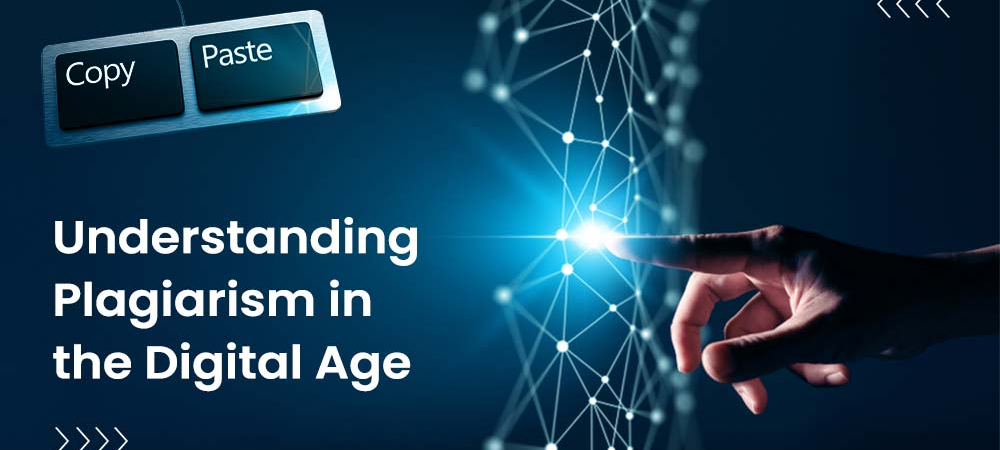Introduction
With the proliferation of digital technologies, content has rapidly expanded to include blogs, student essays, product reviews, and practically anything. The ease of accessing and copying information also increases the likelihood of plagiarism. Plagiarism checks help in ensuring the integrity and credibility of content by verifying originality. As a student, writer, academic, or a business owner, the chances of coming across the term plagiarism check are high, whether or not the work needs submission. What does this mean? What is the importance of this concept? What are the possible troubles you can avoid through this? Let’s look into everything you need to know about plagiarism checks and their significance in today’s world.
What Is Plagiarism?
We dive into the details of plagiarism checkers, it is vital that we first handle the issue of plagiarism.
Plagiarism means taking work, ideas or words of someone else without giving due recognition. These are some examples of plagiarism:
- Canceling all citations and copying content exactly as provided.
- Using ideas, charts or data without giving proper acknowledgement.
- Impersonating someone else’s work or even submitting AI created content as one’s own.
In a learning environment, plagiarism is a severe infringement of academic honesty. In the working world, it may tarnish reputations, prompt legal battles over intellectual property, and hurt search engine optimization (SEO) for business websites.
What Is a Plagiarism Check?
The process of scanning a piece of content through specialized software in order to find any instances of duplication is referred to as a plagiarism check. Plagiarism checkers scan the provided content against a huge collection of documented content such as websites, books, academic papers, etc., looking for matches.
These tools aim to determine whether any section of material is original or whether parts of it were published before. Most checkers indicate similarity level and highlight certain phrases or sentences that are cited by other sources.
Why is it Important to Check for Plagiarism?
Whether you are drafting an academic paper, writing content for a website, or preparing a report, it is critical to check for plagiarism for the following reasons:
Preserves Professional and Academic Reputation
Both in the workplace and academia, originality demonstrates a level of trust. A plagiarism free piece of work earns you credibility from your readers, professors, clients, or audience.
Prevents Legal and Academic Issues
Some of the consequences that result from plagiarism include:
Students stand a chance to be suspended, incur academic penalties, or in some cases, even face expulsion.
Writers and marketers risk damaging their reputations.
Businesses stand the chance of being sued or incurring copyright strikes.
Utilizing a plagiarism checker helps identify problems before submission, allowing the author to sidestep these complications.
Enhances Search Engine Optimization (SEO)
Duplicate content stands out as a highly noted ‘red flag’ to search engines for bloggers and businesses. Google is one of many that may even punish websites for using plagiarized content, therefore reducing visibility and traffic. Publishing original work raises your sites ranking along with organic visitors.
Encourages Creative Development

Checking work for plagiarism challenges an individual to foster creativity and create original ideas, therefore encouraging the unique expression of thoughts.
How Do Plagiarism Checkers Work?
The tools that plagiarism detector employ intricate algorithms alongside machine learning models to scan your content against billions of webpages and databases. The process includes the following steps:
- Uploading or Paste Your Document
- Tool Search for Matches
- Identifying Results of Matching Text and Its Sources
- A Report, or Score Is Generated
In fact, some tools go as far as highlighting improper citation marks, issues with paraphrasing, or even content written by AI.
Some Popular Tools Used For Checking Plagiarism
There are a variety of plagiarism detection tools that are reliable and cater to the different needs of users.
Turnitin
This is popular among academic institutions who check papers submitted in schools as it offers reports. It is reputed for thoroughness as well as for having interfaces with other learning software.
Grammarly Plagiarism Checker
Best suited for writers, freelancers, and even students, the premium version of Grammarly checks essays from students against academic papers and webpages.
Copyspace
Best suited for content on websites, copspace offers the ability to check webpages, and see if pieces of content from them have been replicated on the internet.
Quetext
This tool is suited for students and casual writers who want to use an interface that is simpler.
Plagscan
This tool is used more often for institutions and publishers that require detailed reports on plagiarism and tracking their sources.
Avoiding Plagiarism Infographic Tips:
Plagiarism checkers can be helpful tools, but as the saying goes, ‘prevention is better than cure.’ Here are some ways to help you not commit plagiarism while creating work:
Understanding the Source: Reading, understanding, and converting information into your own expression helps preventing plagiarism.
Quote When Necessary: Whenever using exact wording, quote the material and give credit to the author.
Put Ideas in Your Words: Do not convey parts of the text verbatim.
Never Fail to Cite: For any idea, stat, or remark that does not belong to you, reference those appropriately.
Keep Track of Your References with Citation Managers: Zotero and EasyBib are sample organizing tools that can assist in compiling references.
Plagiarism Scenario Conclusion
In a time where content is king, originality is your crown. A plagiarism scan, for instance, should be more than just a precaution—it’s essential for individuals who uphold the values of thorough work and professionalism. It doesn’t matter if you are a student who is trying to improve academically, a business owner working on a brand, or a writer preparing for the next big thing; having absolutely original work is mandatory.

